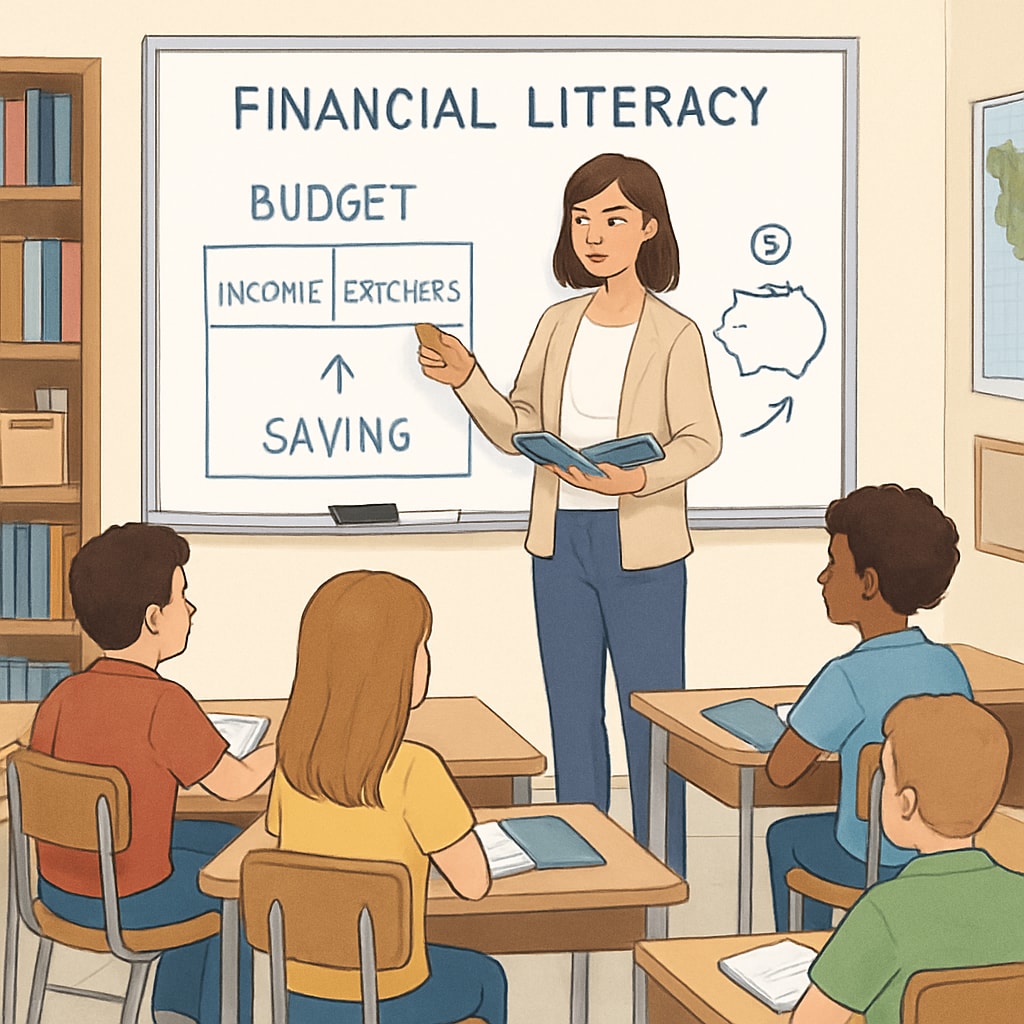In today’s fast-paced world, financial literacy and time management are two life skills that are often overlooked in traditional school curriculums. While academic knowledge remains the priority, these vital competencies are rarely taught systematically. This oversight leaves students ill-prepared for real-world challenges. Incorporating financial literacy and time management into K-12 core curriculums is not just beneficial—it is essential. By equipping students with these skills, schools can help them navigate adulthood with confidence and competence.
Why Financial Literacy Matters
Financial literacy refers to the knowledge and skills required to make informed and effective financial decisions. Unfortunately, many young adults enter the workforce without understanding basic concepts like budgeting, saving, or managing debt. According to a report by Investopedia, financial illiteracy can lead to poor money management, long-term debt, and even bankruptcy.
Teaching financial literacy in schools can address these issues early. For example, students can learn how to create a budget, understand credit scores, and differentiate between good and bad debt. These lessons offer lifelong advantages, empowering students to make sound financial choices and avoid common pitfalls.
- Budgeting: Teaching students how to allocate their income effectively.
- Savings: Emphasizing the importance of emergency funds and long-term investments.
- Debt management: Educating students on responsible borrowing and repayment strategies.

The Importance of Time Management Skills
Time management is another critical skill that is often neglected in traditional education. Effective time management enables students to prioritize tasks, meet deadlines, and balance academic, personal, and extracurricular activities. Without these skills, students may struggle with procrastination, stress, and burnout.
Schools can integrate time management lessons into their curriculums through practical exercises. For instance, students can be taught to use planners, set SMART (Specific, Measurable, Achievable, Relevant, Time-bound) goals, and develop routines that optimize productivity. These habits, when established early, can significantly improve academic performance and personal well-being.
Furthermore, strong time management skills translate to professional success. In the workplace, employees who manage their time effectively are often more productive and less stressed, making them valuable assets to their organizations.

Integrating Financial Literacy and Time Management into School Curriculums
Incorporating these life skills into school curriculums requires a structured approach. Here are some strategies schools can adopt:
- Dedicated Courses: Offer standalone courses on financial literacy and time management as part of the core curriculum.
- Cross-Disciplinary Integration: Embed these topics into existing subjects like mathematics, economics, or social studies.
- Hands-On Activities: Use simulations, workshops, and real-world scenarios to make lessons engaging and practical.
- Parental Involvement: Encourage parents to reinforce these skills at home through discussions and joint activities.
By adopting these methods, schools can ensure that students graduate with a well-rounded education that includes both academic knowledge and essential life skills.
The Long-Term Benefits for Students and Society
The benefits of teaching financial literacy and time management extend beyond individual students. On a societal level, financially literate citizens contribute to economic stability, while individuals with strong time management skills are likely to be more productive and efficient workers.
Moreover, these skills foster personal growth, enabling students to lead more balanced and fulfilling lives. For example, a student who learns to manage money responsibly is less likely to face financial stress, while a student who masters time management can find time for hobbies, relationships, and self-care.
As a result, integrating these skills into school curriculums is not merely an educational reform—it is an investment in the future of society.
Conclusion: Financial literacy and time management are essential life skills that deserve a place in school curriculums. By prioritizing these areas, schools can prepare students for the challenges of adulthood, empowering them to lead successful, balanced lives. The time to act is now.


